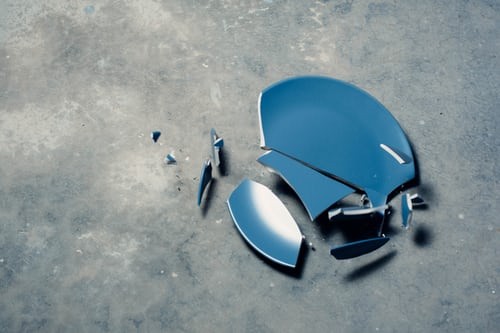
You are a calm and measured leader. You have high EQ and pride yourself on the relaxed nature you bring to your high-pressured role. You understand that leadership is about inspiring and supporting those around you to reach their potential. Yet here you are displaying an ugly character as you over-react to a circumstance that would normally cause you to do no more than raise an eyebrow. You go home and reflect on your day, possibly ignoring all the positive things you contributed, instead focussing only on the single moment you lost your cool.
So how did it happen?
Your position incorporates a wide range of responsibilities across a broad spectrum. The mental dexterity required to keep all these plates spinning, whilst giving the impression of serenity to the outside world, is often likened to the very different views of a duck when observed above and below water. Add to this the likely draw on your time that challenges your world at home, and you have a recipe for an occasional, very understandable, slipping of the mask. Don’t beat yourself up over a bad day as a leader. The pressure that builds as you attempt to maintain a consistent, fair and measured approach to those in your leadership duty of care, can be intense.
Let’s assume your leadership style did not perform a complete 180 and see you throwing furniture at an unsuspecting trainee for the slightest of faux pas. More likely you are experiencing a tough week. You have many issues requiring brain space and time pressures are rising. This morning has seen further additions to your workload that you have not had the chance to delegate yet. As a result, a relatively small issue may well cause an unexpectedly strong reaction from you. Frustration at the possibility of unnecessary addition to your workload briefly drawing an unacceptable emotional display to the surface.
What the recipient of the outburst, or over-reaction, does not see is the cumulative effect of everything on your mind. They are unaware of the four other situations in the last few days that have served to heighten your internal tensions. And nor should they be. These challenges are for you to digest and manage internally and not a set of justifiable excuses you can wave openly at any point to excuse your behaviour. Recounting in your defence, the list of pressures or events that have caused such a reaction, serves only to suggest you are not suited to your leadership position and the associated responsibilities.

How should you react to your own outburst?
These unexpected, and initially unwanted, displays are in fact the window to your passion, character and personality. You are human. You make mistakes. The key at this point, is that you acknowledge your emotional spike or inappropriate interaction and return to the consistent leader everyone knows well. When I say acknowledge, I am not saying you necessarily apologise unreservedly. Although in some circumstances an apology may well be appropriate, it is best to consider the reason for your reaction and whether there is benefit to expanding on the source of your irritation.
If it is not your normal behaviour, people will recognise that. Many will empathise if party to an emotionally charged incident or conversation. Providing you reflect and acknowledge, thus reassuring those who witnessed your character switch, that is was just you ‘being human’.
One of the most common reasons for a disproportionate outburst, is the cumulative effect of one individual consistently pushing your buttons. Whether it be their attitude, their performance or your disappointment that they consistently fall below the standards you set, the likelihood is that they will be the first to receive a disproportionate reaction. It is almost as though you have been waiting for this opportunity to show your emotions and really let them know how you feel. If when reflecting you realise this is the case, now is the time to proactively deal with those frustrations rather than risk further unwarranted outbursts.
Responding rather than reacting.
Our natural human emotions have often been perceived as being separate to any cognitive process in our brain. However, in 2017 this theory was challenged by Professors Joseph LeDoux and Richard Brown from New York University and City University New York. [‘A higher-order theory of emotional consciousness’] The encouragement we can take from this theory is that we have some control over our emotions through the cognitive process. What this means on a daily basis, is that we do not have to surrender to negative spikes but instead allow ourselves a few seconds to assimilate the circumstance and then respond rather than react.
This process is made considerably easier if you regularly reflect on situations or individuals that are causing unwanted levels of negative emotion. Imagine your own negative reaction to a likely culmination of this emotional pressure and how it might manifest itself. Work through better scenarios and how you would choose to behave on each occasion. By pre-stressing, you are able to set yourself up for those few seconds that bring response rather than ugly reaction.
The measures you can take to lessen the likelihood of a leadership slip are certainly not a guarantee you will avoid that day where you end up disappointing yourself with a disproportionate reaction or emotionally charged decision. A leader with human flaws who embraces and learns from their mistakes, is an inspiration to those around them. The leader who maintains a rigid veneer of perfection, lacking visible emotion, leaves their colleagues distant and disengaged. If you have got it right every time, you are not a great leader, you are a lucky one. If you set the right moral benchmark and learn every time, you are on the road to becoming a great leader.
